The Muslims Who Don’t Fast During Ramadan
Members of Baye Fall eat, cook, and deliver food in grand processions.
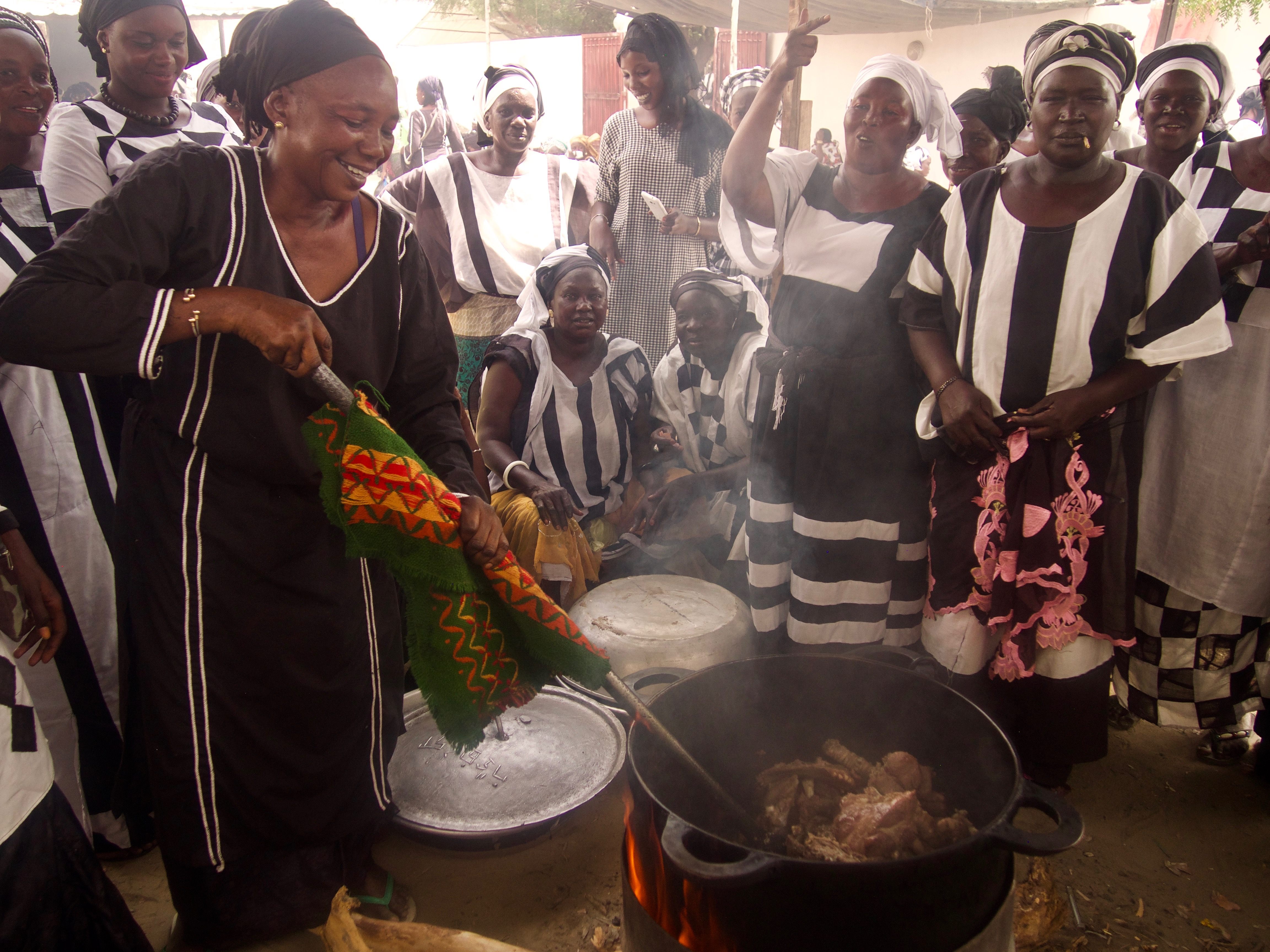
It’s Ramadan in Touba, Senegal, and the road to the Grand Mosque is lined with sleepy storefronts. On the sidewalk, a merchant naps in the shade of a stall where he sells second-hand beanies, defunct AirPods, and wool socks. Behind a floral bed-sheet curtain, a Malian migrant fries up omelettes and frites in a small cafe. Boutiques that resemble bodegas advertise Kerine water, Fanta orange soda, and Coca-Cola to Muslims who will break their fast at sunset.
But amidst this sleepy, Saturday-morning scene, the Baye Fall, members of a Senegalese-Muslim sect, are hard at work.
Mbaye Thiame nudges his son Moustapha into the road to collect money alongside the older teenage boys. They extend wooden bowls into traffic, jangling coins theatrically to solicit donations. Idling drivers toss spare coins into the bowl.
Like many Baye Fall, Moustapha wears layers of checked clothing, his in black and white. According to his dad, the colors signify night and day. Some Baye Fall wear blue and white for the sky, or yellow and black for fortune. Others, like my guide and Wolof translator, Almane Badiane, wear a rainbow of colors and fabrics patchworked together into colorful coats.
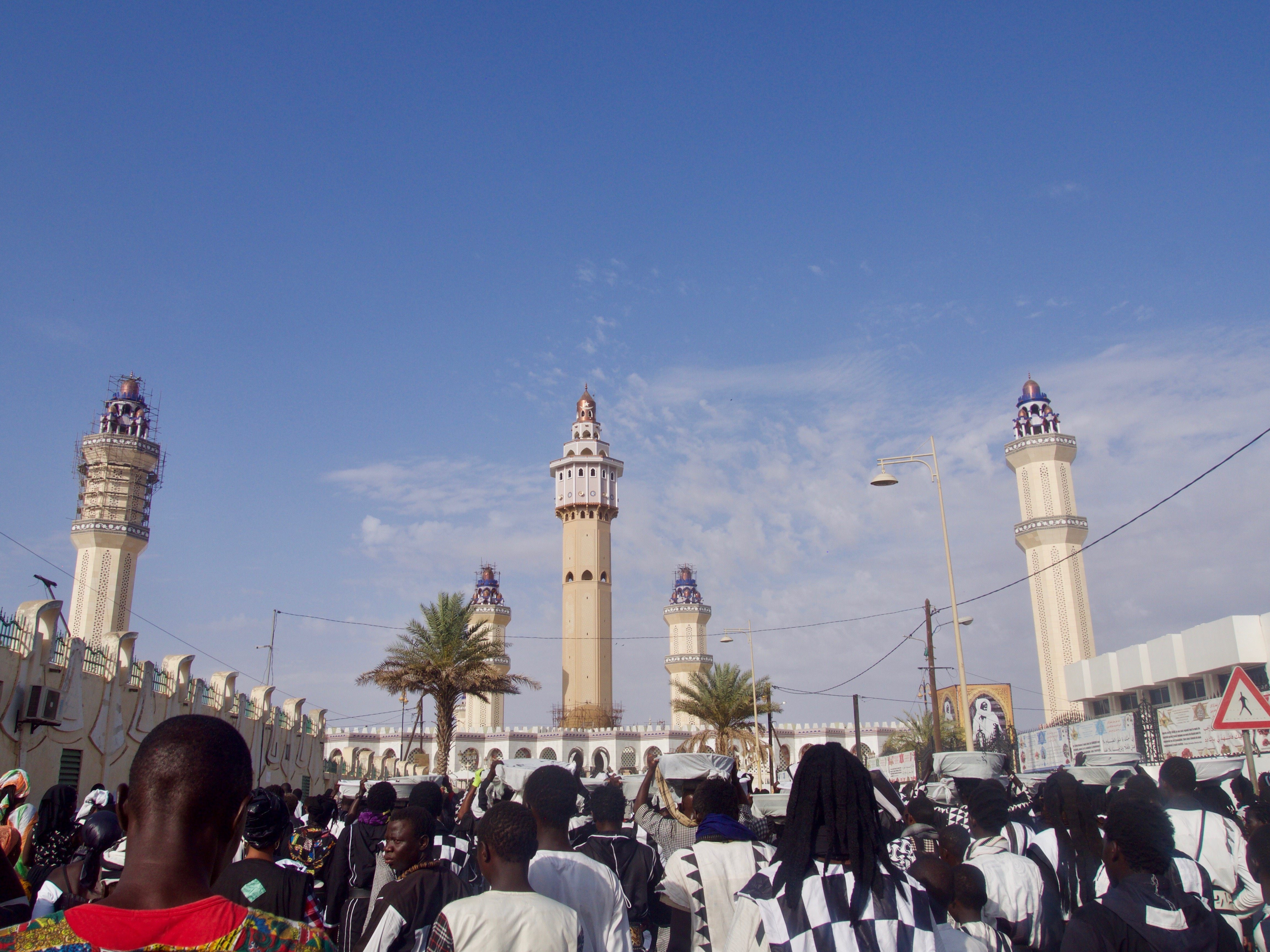
To unfamiliar eyes, the Baye Fall may look vaguely Rastafarian. The men wear their hair in long dreads, often scooped up into a beanie. Unlike many Muslims, the Baye Fall do not fast during Ramadan. In fact, they do not participate in many Muslim practices, such as praying five times each day or abstaining from alcohol. Many Senegalese view them as stereotypical hippies: likely to hang around a beach, exude chillness, maybe even share hashish or something similar.
But this image co-exists with a unique and central tenet of Baye Fall spiritual life: Instead of fasting or praying five times a day, they enact their faith through hard work and service to others.
So, once each year, they gather from across Senegal during Ramadan for a rousing and touching spectacle: They cook all day and, in a grand, musical procession, deliver that food to Touba’s largest mosque to feed fellow Muslims breaking their fast.
“We don’t come to Touba just because of our own feelings,” says Thiame. “We come to Touba because the marabout asks us to. Part of what it is to be Baye Fall is to follow.”
The marabout is the sect’s spiritual leader, endowed with authority by the founder Ibrahima Fall. That authority comes in no small part from a worldly source: undermining French colonialism. When Sheikh Ahmadou Bamba, creator of a Senegalese sect of Sufi Islam, was exiled for decades by the French for teaching pacifist resistance, it was Fall who ensured his influence only grew by financing Bamba and spreading his message. When he was allowed to return, Bamba honored Fall with the designation of Sheik.
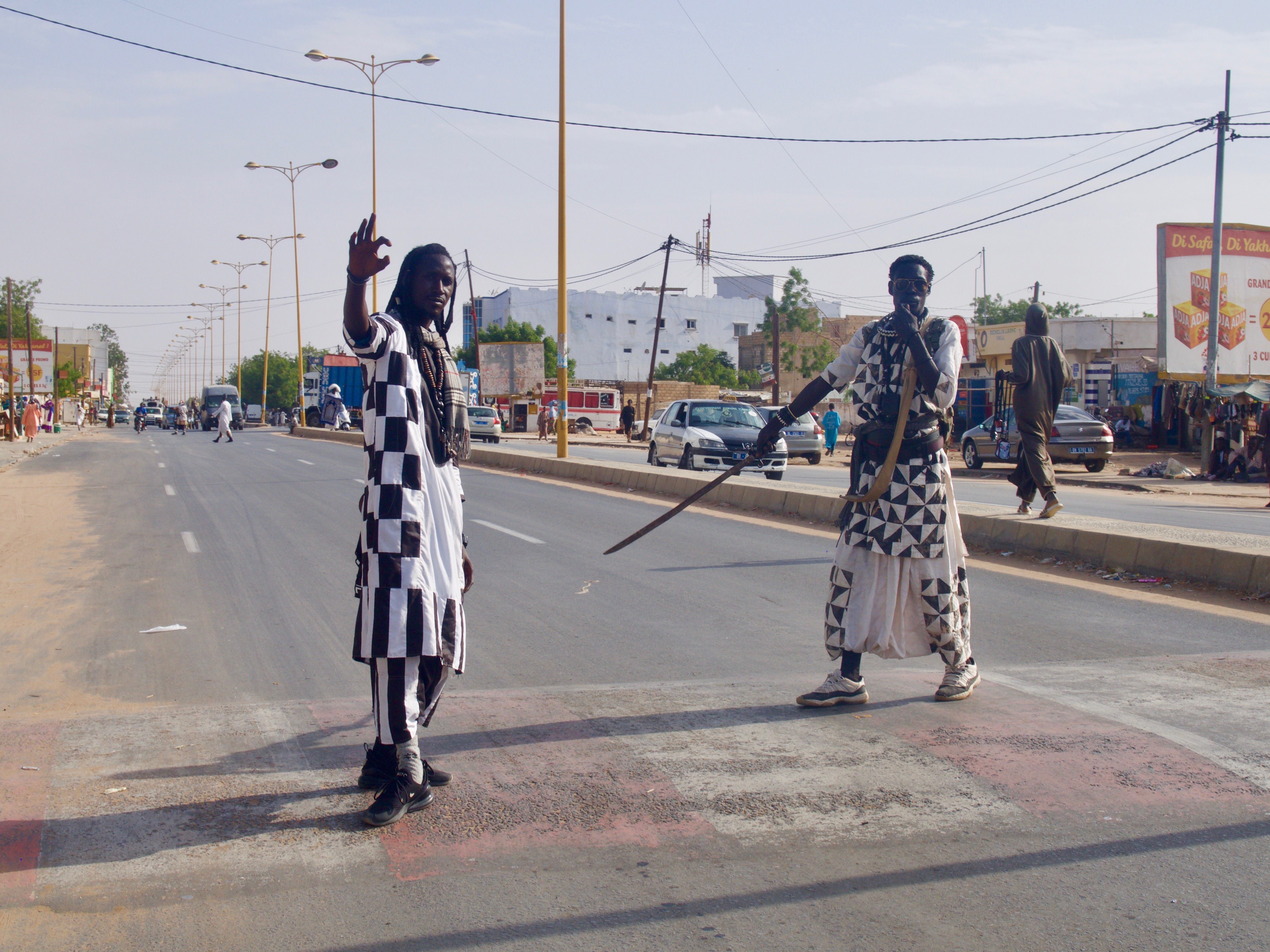
Both Bamba and Fall died almost a century ago, but portraits of both, as well as current marabouts, adorn taxis, living room walls, and the sides of car rapides, a type of local bus. For followers of both, Touba is their holy city.
Thiame has been coming to Touba for Ramadan since he was a child, more than 40 years ago. Now Thiame brings Moustapha, his wife, and the rest of his children each year.
Touba is a quintessential city of the Sahel, sitting squarely between the dripping humidity of the tropics and the burning heat of the Sahara. Nevertheless, hundreds of Baye Fall are camping out in tents on the marabout’s compound and preparing food for fasting Muslims, just as the marabout has asked them to. It’s a labor-intensive effort that repeats itself each day.
“There are many ways to participate,” Badiane says. “People stop all their activities to come to Touba to help cook. Other people help carry food. And other people help sing. And, of course, some people can just give more money. We as Baye Fall are called to come and serve.”
Outside his family’s blue camping tent, Thiame fans himself with a newspaper. He has sent his son off with the money they collected to the market. There, with other Baye Fall, they will buy ingredients for today’s meals.
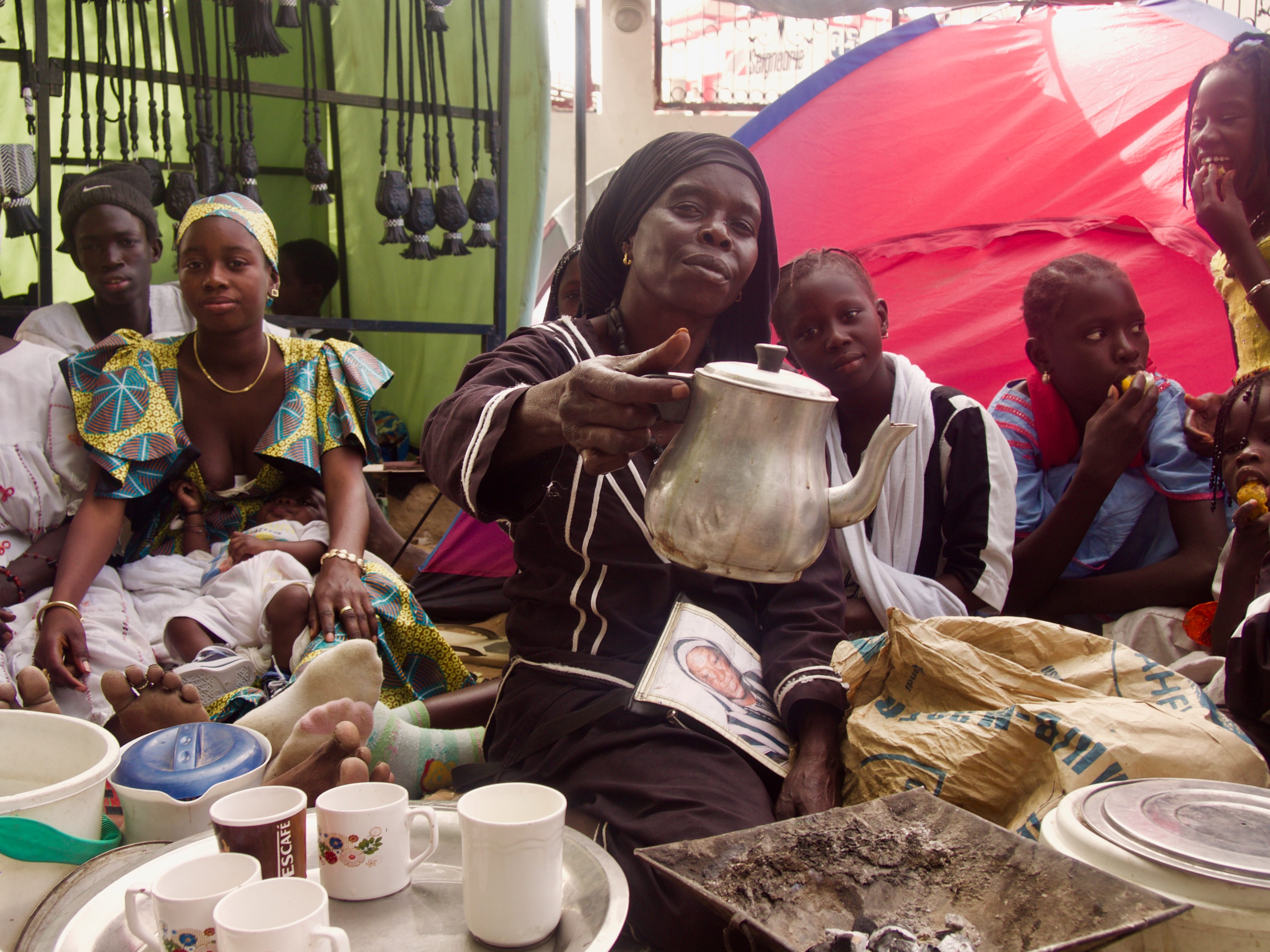
The work is gendered, as is the dress code. Because Touba is a religious city, home to what locals claim is the second largest mosque on the continent, drinking alcohol, smoking cigarettes, and listening to non-Islamic music is forbidden. Women are asked to cover their hair and wear a skirt. They also do the cooking.
For the women, the day is marked by two big meals: the followers’ meal for the Baye Fall in the early afternoon, and the ndogou, which is the meal they will deliver to the Mosque.
Those who don’t cook, both men and women, relax in the shade of the baobab trees, where they chat and drink rounds of cafe touba, cups of coffee spiced with guinea pepper and spoonfuls of sugar.
Back in the kitchen, Kine Thiame and Ellene Diop, direct the action. The followers’ meal is a classic Senegalese dish called thieboudienne. Today’s version is a modest mix of rice, black-eyed peas, cabbage, carrots, and onions.
In one corner, the women sit in small circles and dice the vegetables into plastic containers while teasing each other. In another, they simmer the rice and black-eyed peas over an open-flame. Diop shoos away a man who peeks his head in to ask when lunch will be ready.
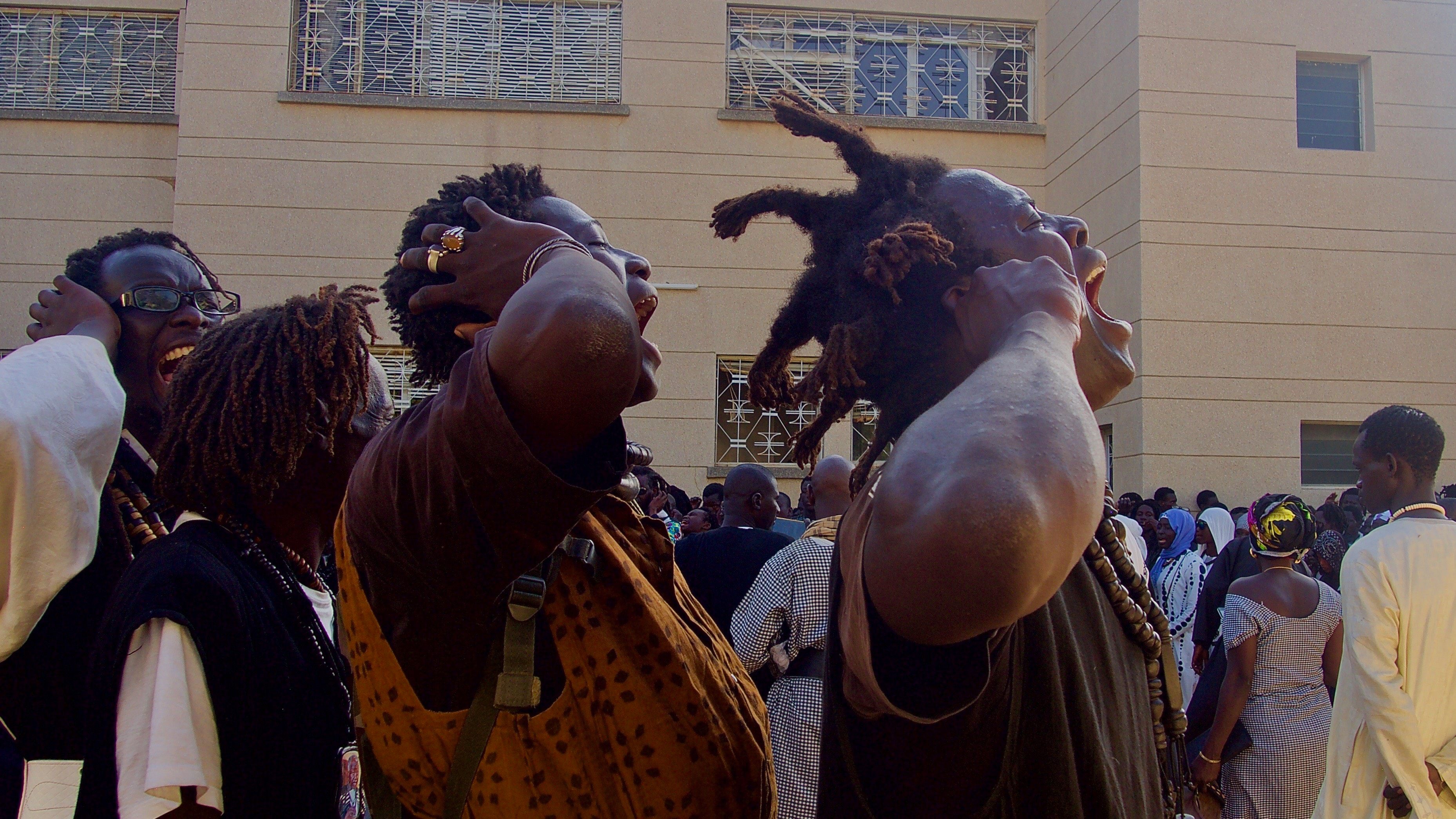
After serving lunch, the cooks start immediately on the ndogou, which is touffe chicken, cooked in an onion, ginger, chili, and mustard sauce, and served with thick cuts of potatoes. They’ve already butchered the chickens, which they keep at the compound, and women sing as they pluck feathers and slice potatoes. In a few quick, hot hours, the whole meal comes together.
“Baye Fall is like a dump full of garbage,” says Mamadou Fall, another member of the group. She is speaking with pride: In Senegal, like in a number of less-developed countries, trash heaps support entire communities of waste-pickers who find, repurpose, and sell recyclable rubbish. While not wealthy, Baye Fall are known for being generous and hospitable, providing acts of service such as assisting when Senegalese cities are hit by floods.
“We are humble like a dump, but we are very useful. We sustain Senegal.”
Shortly before 5 p.m., excitement bubbles up at the compound. The finished touffe chicken sits in large, wide-brimmed metal bowls. Boys who had been lounging at a nearby boutique file in. A man walks around with a large bowl of sweet powdered milk that people scoop into their mouths as a quick snack.
Then, all of the Baye Fall flood out into the streets. Traffic in both directions is forced to a standstill as the Baye Fall congregate on the road and sing the refrain of a call and response.
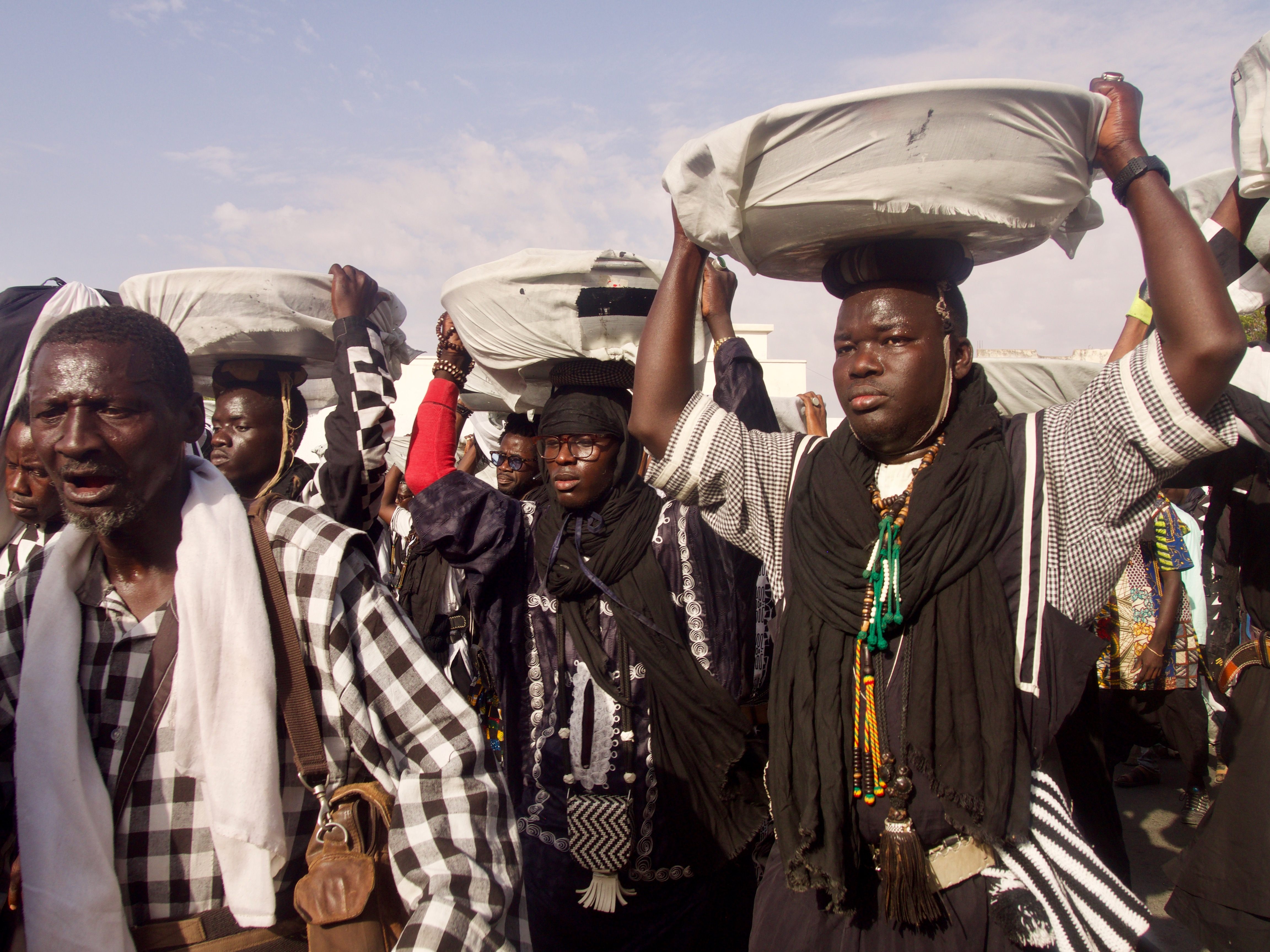
As they parade to the Grand Mosque, the song courses through the crowd like the roar of a stream. The crowd moves like a stream too: It’s difficult not to be caught in its current. I’m nearly panting as I’m pulled along.
A special phalanx of Baye Fall carry the ngodou on their heads, preceded by a row of men carrying wrapped bags of bread. Their expression is serious and reverent.
When they arrive at the mosque, the Imam receives the ngodou and directs each bearer to deliver their bowl to a different neighborhood in Touba. The Baye Fall continue their singing and chanting as they depart and the late afternoon sun bears down.
In Senegal, it is not uncommon for Muslims of all orders to give out free food to help break the fast. In Dakar and Saint Louis, people hand out cafe touba, bissap (a hibiscus tea), and beignets at sundown. But the Baye Fall’s commitment goes beyond the friendly snacks common in cities. It’s a ritual and service; a daily offering of intense labor and community. And it embodies what makes them Baye Fall. Despite the day’s labor, they keep singing and dancing, exultant.
Gastro Obscura covers the world’s most wondrous food and drink.
Sign up for our regular newsletter.



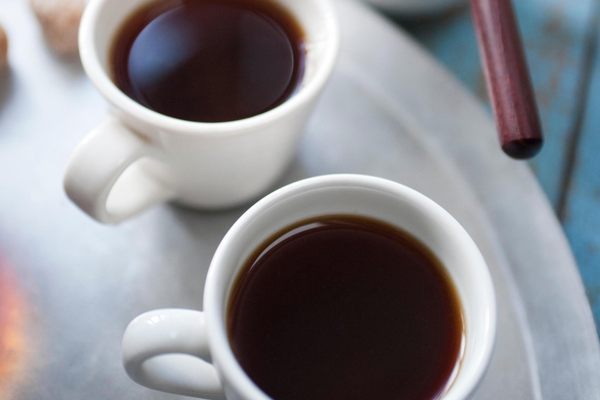


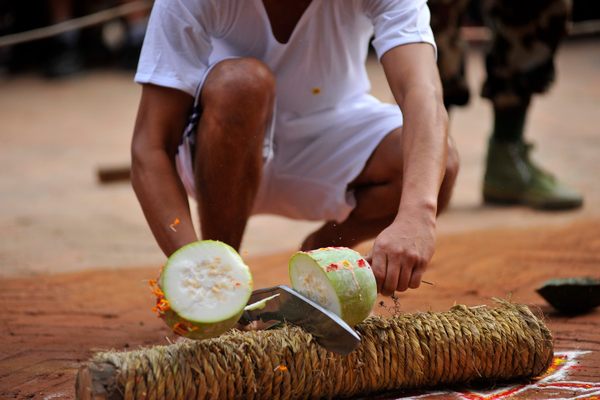



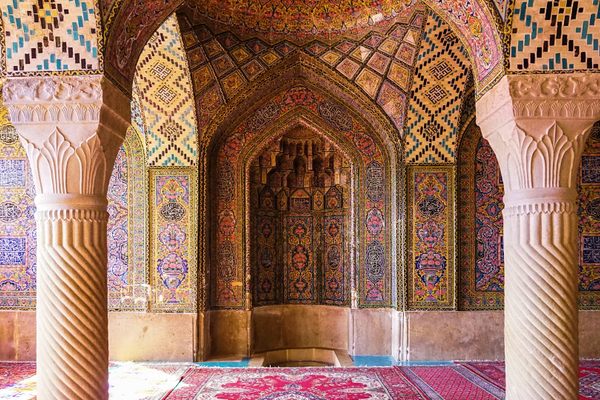
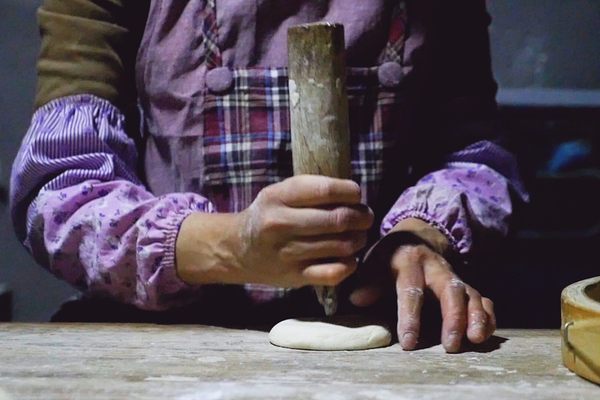

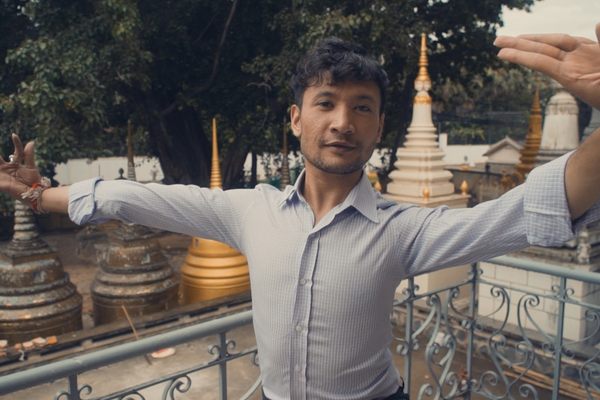




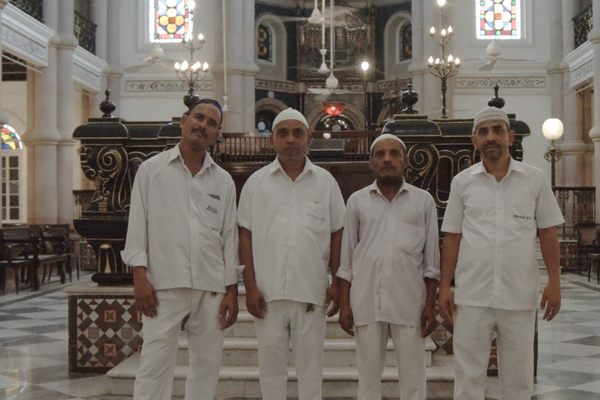















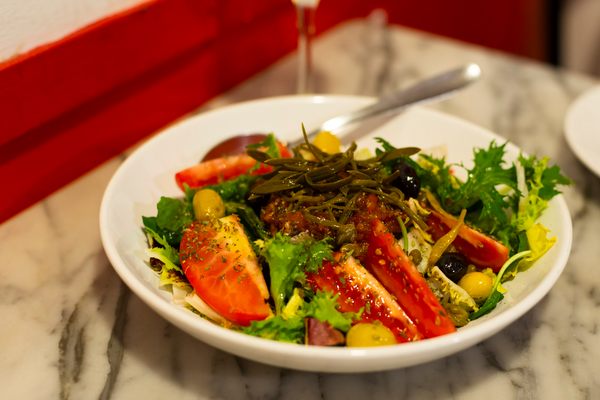
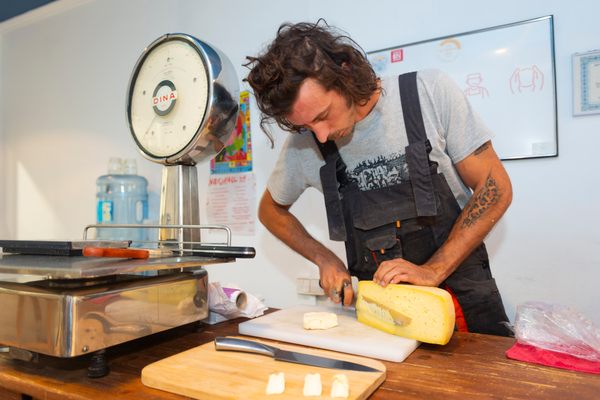
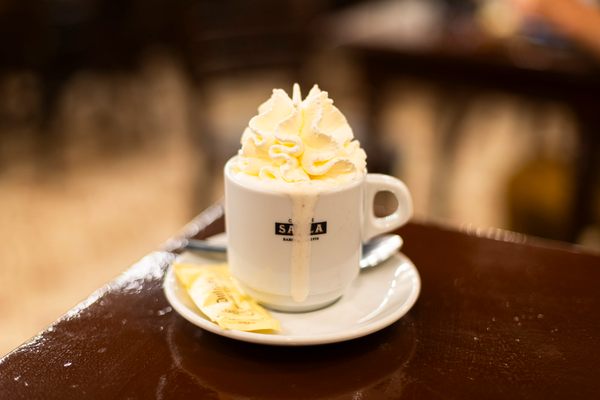


Follow us on Twitter to get the latest on the world's hidden wonders.
Like us on Facebook to get the latest on the world's hidden wonders.
Follow us on Twitter Like us on Facebook